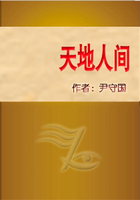Now I think that there can be no better opportunity for studying early stages of agrarian development than that afforded by English mediaeval history. The sources of information are comparatively abundant in consequence of the powerful action of central authority; from far back in the feudal time we get legal and fiscal documents to enlighten us, not only about general arrangements but even about details in the history of landed property and of the poorer classes. And the task of studying the English line of development is rendered especially interesting because it stands evidently in close connexion with the variations of the same process on the continent. Scandinavian, German, French, Italian, and Spanish history constantly present points of comparison, and such differences as there are may be traced to their origins just because so many facts are in common to start with. I think that all these considerations open a glorious vista for the enquirer, and the interest excited by such publications as those of Fustel de Coulanges proves that the public is fully alive to the importance of those studies in spite of their dry details.
What could I personally undertake to further the great objects of such investigation? The ground has been surveyed by powerful minds, and many controversies show that it is not an easy one to explore. Two main courses seemed open in the present state of the study. A promising method would have been to restrict oneself to a definite provincial territory, to get intimately acquainted with all details of its geography, local history, peculiarities of custom, and to trace the social evolution of this tract of land as far back as possible, without losing sight of general connexions and analogies. How instructive such work may become may be gathered from Lamprecht's monumental monograph on the Moselland, which has been rightly called by its author 'Deutsches Wirthschaftsleben im Mittelalter.' Or else, one might try to gather the general features of the English mediaeval system as embodied in the numerous, one might almost say innumerable, records of the feudal period, and to work back from them into the imperfectly described pre-feudal age. Such enquiry would necessarily leave out local peculiarities, or treat them only as variations of general types. From the methodical point of view it has the same right to existence as any other study of 'universalities' which are always exemplified by individual beings, although the latter are not made up by them, but appear complicated in every single case by additional elements.
Being a foreigner, I was driven to take the second course. Icould not trust myself to become sufficiently familiar with local life, even if I had the time and opportunity to study it closely.
I hope such investigations may be taken up by scholars in every part of England and may prosper in their hands; the gain to general history would be simply invaluable. And I was not sorry of the necessity of going by the second track, because I could hope to achieve something useful even if I went wrong on many points. Every year brings publications of Cartularies, Surveys, Court-rolls; the importance of these legal and economic records has been duly realised, and historians take them more and more into account by the side of annals and statutes. But surely some attempt ought to be made to concentrate the results of scattered investigation in this field. The Cartularies of Ramsey, Battle, Bury St. Edmunds, St. Paul's, the Hundred Rolls, the Manorial Records of Broughton and King's Ripton, give us material of one and the same kind, which, for all its wealth and variety, presents great facilities for classification and comparison.(1*)I have seen a good many of these documents, both published and in manuscript, and I hope that my book may be of some service in the way of concentrating this particular study of manorial records. Iam conscious how deficient my work is in many respects; but if by the help of corrections, alterations, additions, it may be made to serve to some extent for the purpose, I shall be glad to have written it. I may say also that it is intended to open the way, by a careful study of the feudal age, for another work on the origins of English peasant life in the Norman and pre-Norman periods.
One pleasant result the toil expended on mediaeval documents has brought me already. I have come into contact with English scholars, and I can say that I have received encouragement, advice, and support in every case when I had to apply for them, and in so large and liberal a measure as I could hardly hope for or expect. Of two men, now dead, I have to repeat what many have said before me. Henry Bradshaw was the first to lay an English MS. cartulary before me in the Cambridge University Library; and in all my travels through European libraries and archives I never again met such a guide, so ready to help from his inexhaustible store of palaeographical, linguistic and historical learning.
Walford Selby was an invaluable friend to me at the Record Office -- always willing and able to find exactly what was wanted for my researches.
It would be impossible to mention all those from whom I have received help in one way or another, but I should like to speak at least of a few. I have the pleasant duty of thanking the Marquis of Bath for the loan of the Longleat MS. of Bracton, which was sent for my use to the Bodleian Library. Lord Leigh was kind enough to allow of my coming to Stoneleigh Abbey to work at a beautiful cartulary in his possession, and the Hon. Miss Cordelia Leigh took the pains of making for me some additional extracts from that document. Sir Frederick Pollock and Mr York Powell have gone through the work of reading my proofs, and I owe to them many suggestions for alterations and improvements. I have disputed some of Mr Seebohm's opinions on mediaeval history; but I admit freely that nobody has exercised a stronger influence on the formation of my own views, and I feel proud that personal friendship has given me many opportunities of admiring the originality and width of conception of one who has done great things for the advancement of social history. As for F.W.
Maitland, I can only say that my book would hardly have appeared at all if he had not taken infinite trouble to further its publication. He has not only done everything in his power to make it presentable to English readers in style and wording, but as to the subject-matter, many a friendly suggestion, many a criticism I have had from him, and if I have not always profited by them, the blame is to be cast entirely on my own obstinacy.















